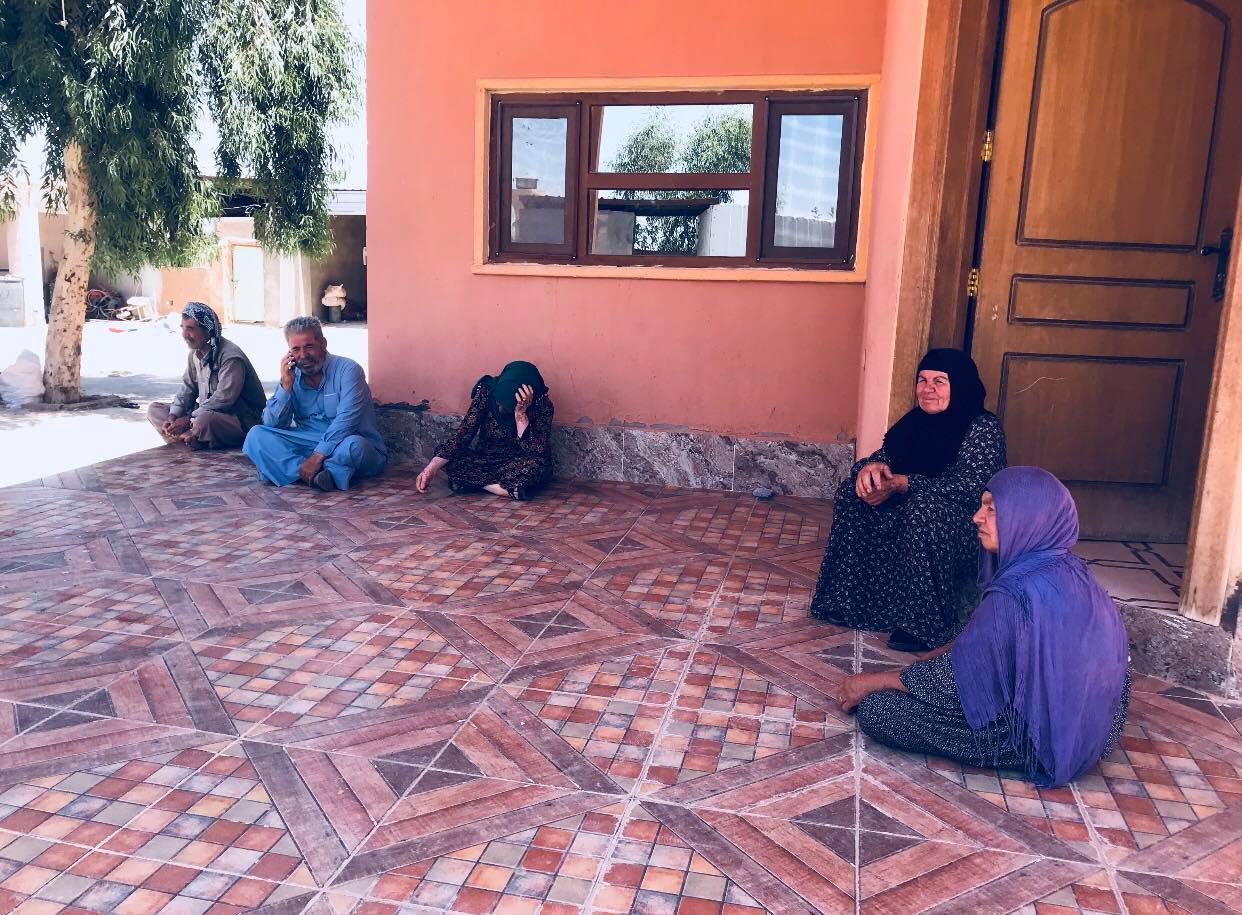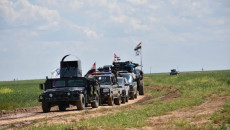Residents of Rizgari settlement of Kaka'i religious minority call on related local and federal authorities for support as Arab settlers ask them for compensation for the last two decades they left the region.
Rizgari residents say that Arabs from al-Bouetha tribe or the second time asked them for lands or compensation. Some families from this tribe were settled in Rizgari under Ba'ath party led By Saddam Hussein which ruled Iraq from 1970s for three decades.
They have built houses over lands of the Kaka'is. They left in 2003 and were compensated by Iraqi authorities.
"Last time was the last week when some key figures of them came and asked for compensation for their lands, some were asking for the lands," said Omed Luqman, member of Rizgari council.
"They had some papers; we don’t know what it is and who gave it to them but we believe some people are behind them."
"They had some papers; we don’t know what it is and who gave it to them but we believe some people are behind them."
Omed said those families came in 1993 by an order from Ba'ath party and occupied two villages of the Kaka;is where they built houses but "they left after 2003 and were compensated (by Iraqi government)."
Rizgari settlement where over 120 families live is part of Daquq District, home to kaka'i religious minority, 44 km southwest of oil rich Northern Province of Kirkuk.
The origin of the landownership disputes goes back to 1970s when agricultural lands belonging to Kurds and Turkmens in Kirkuk, Diyala, Nineveh and Salahaddin provinces were distributed among Arabs from central and southern provinces of Iraq under the rule of the Ba’th regime. Most of the Arabs who were settled there, left after the fall of the Saddam Hussein regime in 2003.
The land confiscation and their redistribution to Arab farmers was part of the ‘Arabization process’ and was directly ordered by the regime’s ‘Revolutionary Command Council’, which had legal powers.
Omed called on related authorities in Kirkuk and Iraq to sort out this issue.

A Kaka'I family in the village of Zanqar in Daquq in 2018. Photo by Kirkuknow.
The oil rich city of Kirkuk, located 238 kilometers north of Baghdad, is ethnically a mixed province of Kurds, Sunni and Shiite Arabs, and Turkmen. It has long been at the center of disputes between Baghdad and the autonomous Kurdistan Regional Government KRG.
After 2003, article 140 of Iraqi constitution in 2005 was outlined as a framework for the determination of the fate of the disputed areas. The three-stage process requires the normalization of the areas, conducting a census, and holding a referendum to know the will of the people to join Baghdad federal government or Iraq's Kurdistan region government KRG. Up today, part of the first stage has been implemented.
"They have filed a law suit to be compensated for the villages of Rizgari and Matiqa," Shikar mardan, a resident of Rizgari told KirkukNow.
"They have filed a law suit to be compensated for the villages of Rizgari and Matiqa," Shikar mardan, a resident of Rizgari told KirkukNow.
"These two villages are for Kaka'is. They ask for compensation for houses built on property of kaka'is and we are not ready to compensate them. They have used our properties for years."
Local authorities deny interference in the decades-long issue.
"We have not received any letters or instructions to compensate those families," Lousi Fandi, mayor of Daquq said. "We also in turn have not provided any letter or permission for anybody but we do not know if they have any court ruling or not."
In August 2020, in a similar incident, a number of Arab families tried to install tents in Talabani and Dawida villages. Mayor Fandi, an Arab, then said the area is one of the disputed but originally it was for Talabani and Dawuda Kurdish tribes yet in 1976 part of it were given to Arabs per Ba'ath party orders.
Kirkuk and other disputed areas were ruled by the KRG yet it came under the control of federal government through a military operation in 2917 after defeat of ISIS which re-imposed federal authority and forced Kurdish forces to withdraw from the areas.





